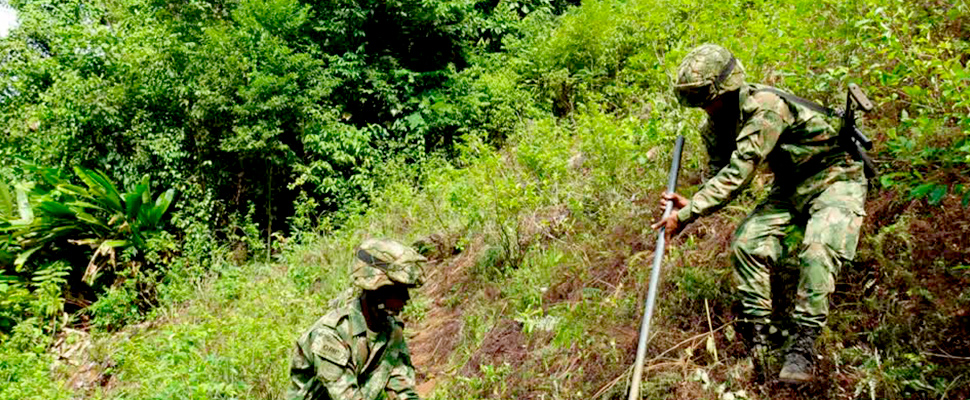Guatemala: Increases the presence of coca leaf crops
The narcos seek to turn Central America into a cocaine-producing region to traffic to the United States and Europe

Two soldiers working in a coca crop. / Reference image / REUTERS
Reuters | Sofía Menchú
Listen to this article
Leer en español: Guatemala: Aumenta la presencia de cultivos de hoja de coca
Guatemala went from being a country of drug transit to a cultivation country, said it's Interior Minister, after recent findings of coca leaf plantations and laboratories for processing in the mountainous areas of the Central American country.
Almost a year ago, Reuters reported that isolated areas of Guatemala, and neighboring Honduras, were being used by drug traffickers to test the conditions of the land and climate and then start growing and processing coca.
In 2018, Guatemalan police found a remote coca leaf plantation of almost one hectare and a laboratory to process it. It was the first such finding in the country, and Interior Minister Enrique Degenhart said Wednesday that since then, they found two more facilities.
"This puts Guatemala in a completely different situation. We are not only a transit country. Following the discovery of these narco-laboratories and the different acres or blocks planted with the coca leaf, Guatemala now becomes a cocaine producer." said Degenhart.
Also read: Mexico: Self-defense defies the president in fight against cartels
"We are (…) working on a very strong strategy with anti-narcotics authorities in the United States because the scenario is already totally different," said the authority in the press conference without giving further details.
Due to climatic conditions, the coca leaf has been planted mainly in Bolivia, Colombia, and Peru, the largest cocaine producers in the world.
However, according to authorities and specialists interviewed by Reuters, the drug traffickers seek to turn Central America into a cocaine-producing region to traffic to the United States and Europe, reducing the complex and expensive logistics of doing so from South America.
The International Commission Against Impunity in Guatemala (CICIG), a UN-dependent body whose president Jimmy Morales did not renew his mandate, revealed the close relations between local politicians and drug traffickers.





